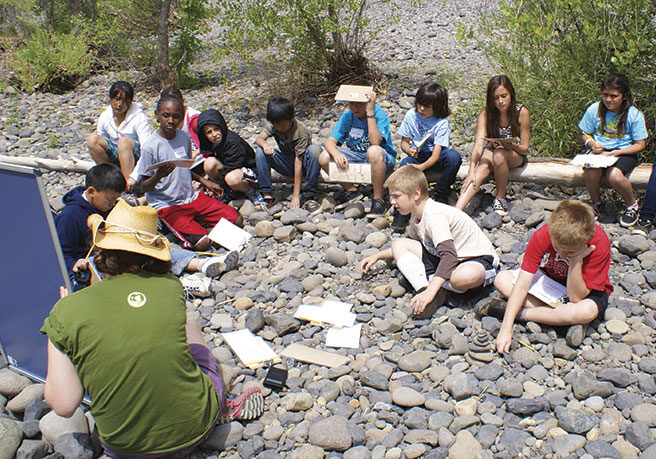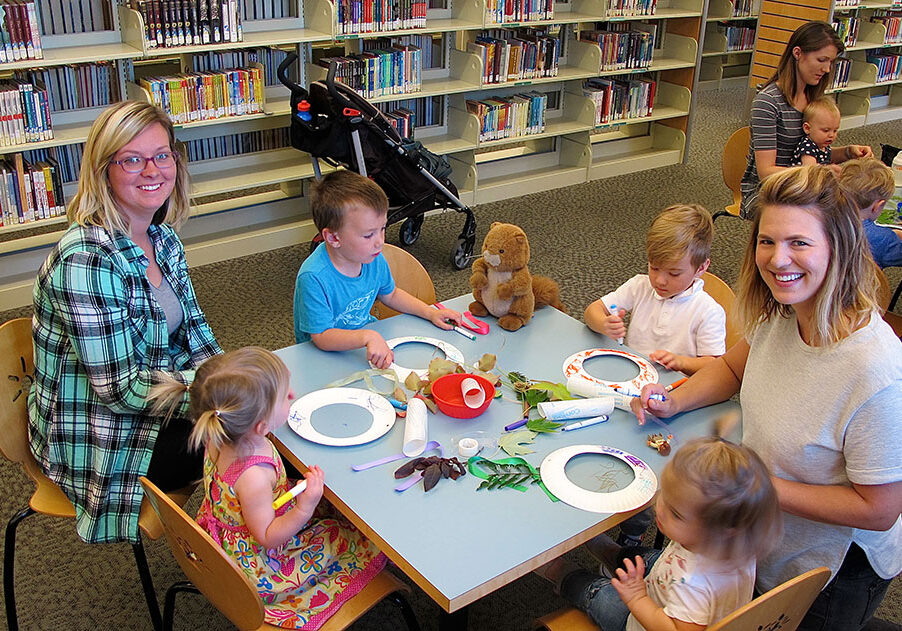Homeschooling is, in its simplest definition, educating a child outside the boundaries of a formal school. It typically means that parents take responsibility for their child’s education. Many people are surprised by the wide variety of homeschooling approaches, from school-at-home curriculum to natural learning much like the “free school” movement.
Homeschoolers come from all religions, socioeconomic statuses, educational backgrounds, races, ethnicities, and family structures. Nobody really knows how many homeschoolers there are because there are so many different ways to homeschool, but current research suggests homeschoolers comprise around 3 percent of the school-age population. Homeschooling is legal in all 50 states, and each state has its own laws regarding compulsory attendance and homeschooling.
In California, children must attend public school between the ages of 6 and 18 unless they are exempt. Although homeschooling is not explicitly mentioned in the law, there are a variety of ways to homeschool that exempt a child from compulsory public school attendance. Parents can, for example, quite easily establish a private school in their own home. Just like any other private school, home-based private schools are required to keep certain records on file and to submit a Private School Affidavit with the state annually, but are free to use the educational approach of their choice. Parents do not need to be licensed teachers, and there is no specific curriculum, testing or reporting required.


Why do families choose to homeschool? There are nearly as many reasons as there are homeschooling families. For some, public school isn’t meeting their child’s needs or perhaps their child is being bullied. Others simply want to spend more time together as a family. Some families want to include their religious beliefs in their children’s schooling.
Homeschooling allows children time to learn subjects not usually taught in their local school or to engage in more in-depth study than what is available in school. It allows children to learn at their own pace, not too fast or too slow, and it allows children to work at their own developmental level.
Skills and concepts can be introduced at the right time for each child. For some parents, it’s important that their child spend a lot of time outdoors rather than in a crowded classroom. For others, it is important that their child have time for more nonacademic pursuits such as art or music. Many families spend time traveling, visiting museums and science centers, and are engaged in many other enrichment activities. Volunteer service activities are often included in a homeschooling family’s regular schedule.
The question that generally brings a smile to the faces of homeschooling parents and children is: “But what about socialization?” Homeschooling allows children to learn social skills from and with other children and adults of a wide variety of ages. The older, more experienced children help assist the younger or less experienced. No artificial age-segregated borders separate children, allowing them to interact. Support groups, learning centers, sports teams, field trips and co-op learning activities are available in many communities and are good resources for finding friends.
For homeschooled children, socialization means learning to get along, not just “go along.” The image of a homeschooling child, isolated at home with only siblings and parents for company, is a myth. Homeschoolers are in the world involved in many extracurricular and community activities; the question of socialization is really not an issue.
The beauty of homeschooling is the ability to tailor the approach to fit the specific needs of a child. Many new homeschoolers choose one of the approaches listed below, and then, with time, pick and choose the parts that work well for their children from multiple methods, and are flexible enough to change as the children change. Some of the most common options are:
School -at -Home: A full curriculum is purchased. It may include teacher services or it might be entirely online. It covers all subjects and often includes a teaching manual for the parent. As homeschoolers are a large market, there are many companies who provide and sell homeschooling curricula. Both secular and religious curriculum materials are available.
Unit Studies: These can be purchased or designed by parents. A topic is selected and all of the children’s lessons revolve around that topic, i.e., “Oceans,” “Animals” or “The Revolutionary War.” A unit study may last a week or many weeks.
Classical Homeschooling: This is also called the “Trivium” approach and it focuses on reason, record, research, relate and rhetoric. A Well- Trained Mind: A Guide to Classical Education at Home by Jessie Wise and Susan Wise Bauer is a popular book on this approach.
Charlotte Mason: This method uses play, creating and conversation as primary learning methods. There are nature studies and “living books.” Narration and discussion are used rather than textbooks and testing. A popular book on this method is A Charlotte Mason Education by Katherine Levison.
Montessori: Under the age of 6, sensorial experiences are emphasized and children work at their own pace while choosing from a variety of special materials. After age 6, children work independently on research and engage in music, science, art and reading activities. There are no textbooks or adult–directed lessons. For more information on Montessori homeschooling visit the Michael Olaf website at http://www.michaelolaf.net.
Waldorf: This is based on the philosophy of Rudolf Steiner and takes an anthroposophical point of view that humans are composed of body, soul and spirit. There is an emphasis on the artistic appreciation of beauty in the lower grades, and on observing, reflecting and experimenting in the upper grades. For more information, visit http://www.waldorfhomeschoolers.com.
Unschooling: Also sometimes referred to as “natural learning,” unschooling drops the conventions of schooling, eliminating required subjects, assignments and tests. These are replaced with the creation of a stimulating, enriched environment along with lots of parental support encouraging children to pursuing their particular interests and passions. A good introduction to unschooling is The Unschooling Handbook by Mary Griffith.
Eclectic Homeschooling: Probably the most common form of homeschooling, parents choose to use a variety of resources and approaches for different subjects. They might choose a math workbook from one company and a reading program from somewhere else. They may be very relaxed about some subjects, while carefully and thoroughly covering others.
Does homeschooling work? There are numerous studies comparing the achievement of homeschoolers with public-schooled children on a variety of standardized tests. Generally, homeschoolers tend to score as well or better than those who are conventionally schooled.
Perhaps most useful are studies focused on the performances of homeschooled students as they enter colleges and careers. Homeschooled students attend selective colleges as well as state colleges, universities and community colleges, and are reported to be more focused and self-reliant than traditionally schooled students, and to adapt better to doing independent work and living on their own. Homeschoolers graduate from college at a higher rate than their conventionally schooled counterparts and achieve higher grade point averages.
Homeschoolers have often had a great deal of experience in structuring their own time and taking charge of their own learning. This helps them find success as entrepreneurs, artists, athletes, and in many other pursuits.
When asked what they’d like to tell others about homeschooling, many homeschooling families talk about there being less stress and pressure in their lives. They don’t need to get up as early or enforce homework in the evenings. Homeschooling families also frequently mention appreciating being able to fully support their children’s interests. Most of all, they feel homeschooling is a lifestyle that is especially conducive to a close and loving family life.
Comment Policy: All viewpoints are welcome, but comments should remain relevant. Personal attacks, profanity, and aggressive behavior are not allowed. No spam, advertising, or promoting of products/services. Please, only use your real name and limit the amount of links submitted in your comment.
You Might Also Like...

Planning for College in Middle School – It’s Not Too Early
If you plan on sending your child to college you may wonder: how early should I begin planning? Besides saving for tuition and other expenses, what additional steps should I […]

Paragliding Papa Takes To The Sky
Siskiyou County Dad Takes To The Sky And Becomes A Better Parent For some kids, the name “Dad” connotes a hero who can do anything but fly. However, for Elliot, […]

Wild Things at Your Child’s School
A nonprofit animal rescue Your classmates may have been wild, but if you grew up in the North State, you probably made it through your entire academic career without so […]

Helping Kids Learn to Make Good Decisions
Nurture independent decision-making Ever looked at your child in bewilderment and asked: “What were you thinking?!” Then you know that kids, especially teens, can make some profoundly poor decisions. Luckily, […]



